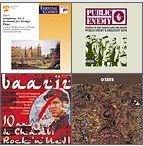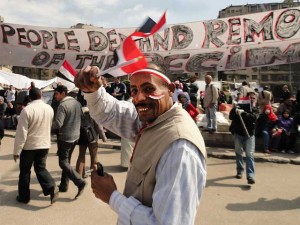It is amazing and inspiring to watch these demonstrations! It has been horrifying and shocking to watch the response of the Libyan regime!
It is considered naive to suggest that foreign policy should be based on principle. We are told it is necessary to be Machiavellian in safeguarding our national interest, and in the realm of foreign policy, realpolitik often trumps principle. I disagree. Perhaps I am, indeed, naive, but I believe that democracy, with protection for the rights of the minorities, is a principle that trumps almost all, and our policy ought to reflect that.
In the current wave of peaceful democratic revolutions sweeping the Arab world, US support of the citizen demonstrators has been slow and tepid. This in spite of the fact that sticking to our principles and unequivocally supporting the pro-democracy demonstrators is what is in our best economic and strategic interest. To do otherwise is a risky strategy, a strategy that, should it not go the way proponents believe, will have grave consequences.






